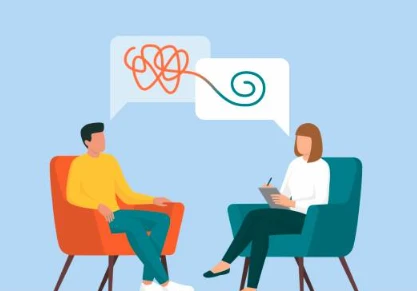Discover the essential steps to launch your career in mental health counselor. Learn how certification opens real-world opportunities.
Becoming a certified Mental Health Counselor is a fulfilling journey for those eager to help people navigate mental health issues. It requires education, training, and licensure, but the process can be manageable with the right steps. Mental Health Counseling Courses, licensed mental health counselor programs, mental health counseling services, and affordable online LMHC programs provide accessible ways to enter this field. This article outlines the path to becoming a Mental Health Counselor, offering practical tips to streamline the process while ensuring quality training and professional readiness.
Understanding the Role of a Mental Health Counselor
A Mental Health Counselor helps clients manage conditions like anxiety, depression, or stress using therapies like cognitive-behavioral therapy (CBT). Mental Health Counseling Courses teach these skills, covering topics like assessment and treatment planning. Licensed mental health counselor programs ensure counselors meet state standards, preparing them for licensure exams like the National Clinical Mental Health Counseling Examination (NCMHCE). Mental health counseling services include individual therapy, group sessions, and crisis intervention. Affordable online LMHC programs make training accessible, allowing flexibility for working adults. A Mental Health Counselor listens, supports, and guides clients toward better mental health.
Step 1: Complete a Bachelor’s Degree of a Mental Health Counselor
The journey starts with a bachelor’s degree, often in psychology, social work, or a related field. Mental Health Counseling Courses at the undergraduate level introduce concepts like human behavior and ethics. These courses lay the groundwork for licensed mental health counselor programs, which require a strong academic foundation. Some programs include prerequisites like statistics or developmental psychology, ensuring readiness for graduate studies. Mental health counseling services value counselors with broad knowledge, so electives in sociology or communication can be helpful. Affordable online LMHC programs often accept credits from various bachelor’s degrees, making this step flexible.
Step 2: Enroll in a Master’s Program of a Mental Health Counselor
A master’s degree in mental health counseling is essential to become a Mental Health Counselor. Licensed mental health counselor programs at the graduate level focus on advanced skills like diagnosis and therapy techniques. Mental Health Counseling Courses in these programs cover topics such as group dynamics, trauma, and ethics. Many schools offer affordable online LMHC programs, which provide the same curriculum as in-person options but with more flexibility. These programs prepare students for mental health counseling services by including practical training, such as role-playing therapy sessions. Completing a master’s typically takes two to three years, depending on the program.
Step 3: Gain Supervised Clinical Experience of a Mental Health Counselor
After earning a master’s, aspiring counselors need supervised clinical hours to qualify for licensure. Licensed mental health counselor programs require 2,000 to 3,000 hours of supervised practice, depending on the state. Mental Health Counseling Courses often include internships where students provide mental health counseling services under a licensed supervisor. This hands-on experience builds skills in client interaction and case management. Affordable online LMHC programs may connect students with local clinics or virtual supervision opportunities. A Mental Health Counselor refines their approach during this phase, learning to apply classroom knowledge to real-world scenarios.
Step 4: Pass a Licensing Exam of a Mental Health Counselor
To become a certified Mental Health Counselor, candidates must pass a state-approved exam, such as the NCMHCE. Mental Health Counseling Courses prepare students for this test by covering topics like assessment and treatment planning. Licensed mental health counselor programs often include exam prep modules to boost confidence. The exam tests knowledge of mental health counseling services, including ethical practices and client care. Affordable online LMHC programs may offer study resources, such as practice tests, to help students succeed. Passing the exam is a key step toward providing professional mental health counseling services.
Step 5: Choose the Right Program Format of a Mental Health Counselor
Selecting the right training format can make the journey easier. Affordable online LMHC programs offer flexibility for those balancing work or family. These programs include Mental Health Counseling Courses that are rigorous yet accessible, with virtual classes and discussion forums. Licensed mental health counselor programs, whether online or in-person, must be accredited by bodies like the Council for Accreditation of Counseling and Related Educational Programs (CACREP). Mental health counseling services benefit from counselors trained in accredited programs, ensuring quality care. A Mental Health Counselor can choose a format that fits their lifestyle while meeting professional standards.
Additional Tips for Success
A few strategies can enhance the path to becoming a Mental Health Counselor. First, network with professionals in mental health counseling services to gain insights and mentorship. Second, explore affordable online LMHC programs to compare curriculum and support services. Third, stay updated on state licensure requirements, as they vary. Finally, practice self-care, as Mental Health Counseling Courses emphasize the importance of a counselor’s well-being. These steps help aspiring counselors stay focused and prepared.
Final Thoughts
Becoming a certified Mental Health Counselor is a structured yet rewarding process. Mental Health Counseling Courses, licensed mental health counselor programs, mental health counseling services, and affordable online LMHC programs provide the tools needed to succeed. By earning a degree, gaining clinical experience, passing exams, and choosing the right program, anyone can enter this meaningful field. With dedication, aspiring counselors can build skills to support clients effectively, making a lasting impact while managing their training efficiently.






